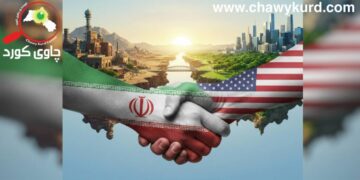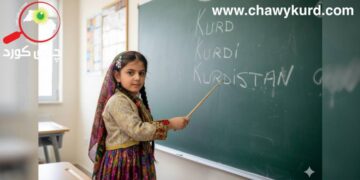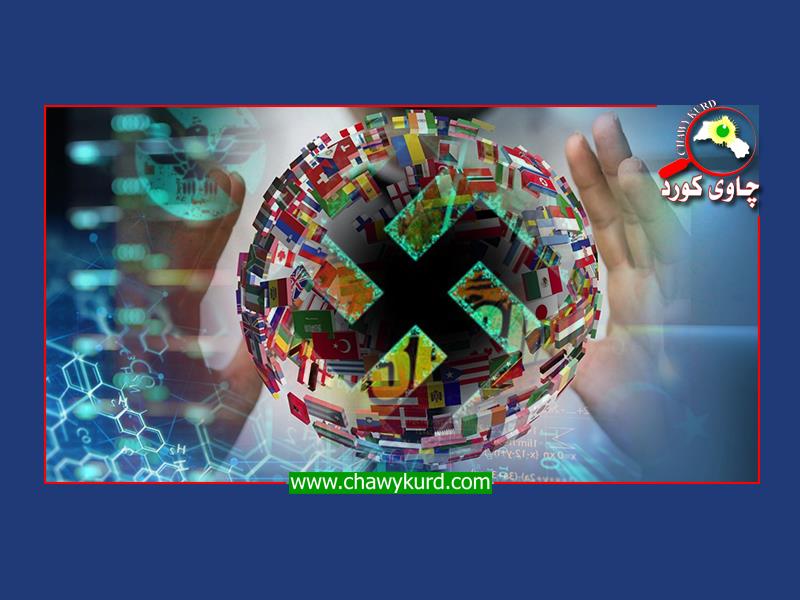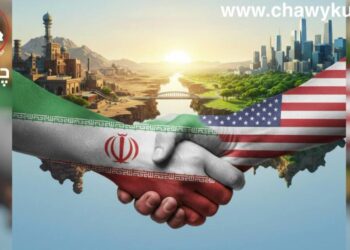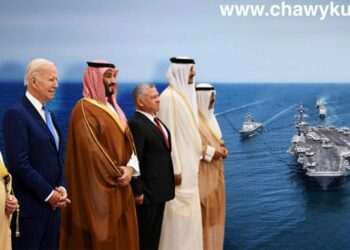The appearance of language in uncommon and inappropriate places has a dual meaning, which has become congested between liberation and fascism, and is the power of awakening, memory, dreams and imagination.
In not any social and political event or phenomenon in the world we can undervalue the significant role of language and its functions to a momentary and vague level. We can apply a same sentence that wherever there is oppression, there is resistance or wherever there is an oppressor, there are people against oppression, with his language. The dominant language, the minority language puts its Deleuze and Gatari rhizome (A rhizome is a concept in post-structuralism describing a nonlinear network that “connects any point to any other point), into the place of resistance, revolution and “centrism. Language is seen and plays a role above and beyond its speaker. Perhaps may this view that we hear from Heidegger, which language speaks, or to put it more precisely; Language brings us to speak, express and manifest ourselves. However, in reality, language does not always fulfill this function and is not given the space to accomplish such a function, which, despite its historical and scientific aspects, is deeply linked to the political situation in our Kurdish world.
But most of all, it is the Kurdish language that plays a role in the equation. During the last forty years of the rule of the Islamic Republic of Iran, the Kurdish language has worked in the two directions as i mentioned above (semi-formal and conservative/informal and revolutionary). Both were in dialectic and negotiation with a revolutionary and Kurdish subjectivity and mentality.
Even now, if we look at the walls and doors of public toilets and mosques in East Kurdistan, we can see traces of resistance and opposition to a bloodthirsty and brutal system that tried to kill language, but language manifested its most existence in uncommon places. We see various slogans against the regime and in praise of Kurdish that start with “Live and die” in the doors of the toilets. However, in fact Kurdish is not only the language present there, but also Persian occurs.
The fascinating point is that the Persian language is at the service of the mentality and subjectivity of the Kurdish language! In fact, this serial image of language appears in the darkness and toilets of a country at its radical level and speaks against the essence of a political system. In addition to the expression of fascism in power, culture and dominant language is the dream of freedom and continuity in prisons, to public toilets. This image can be made into a vast and powerful film.
If I were to present something similar in the relationship between language and its appearance in place and in its unusual and unnatural way; I must mention the 2000 film Quills, directed by Philip Kaufman. The film tells the story of Mark Dussad; French writer and thinker. Dussad, who was the breaker of the sexual, taboo-breaking and losing view of the area in the film, forbidden all the papers, pens, pieces of cloth and writing, so that it is no longer written the atheism and disbelief. In the last sequence of the film, before being taken to execution, he wrote something (novel, short story, story, etc.) on the wall of his cell with his own feces. This immortal energy and survival power in language knows no boundaries, taboos and power can ever capture it due to the fact that it comes from the imagination and the unconscious, the desire for life is stronger than the power of death, the fangs of the invader and the oppressive combat boot. Therefore, the appearance of language in uncommon and inappropriate places has a dual meaning, which has become congested between liberation and fascism, and is the power of awakening, memory, dreams and imagination.






